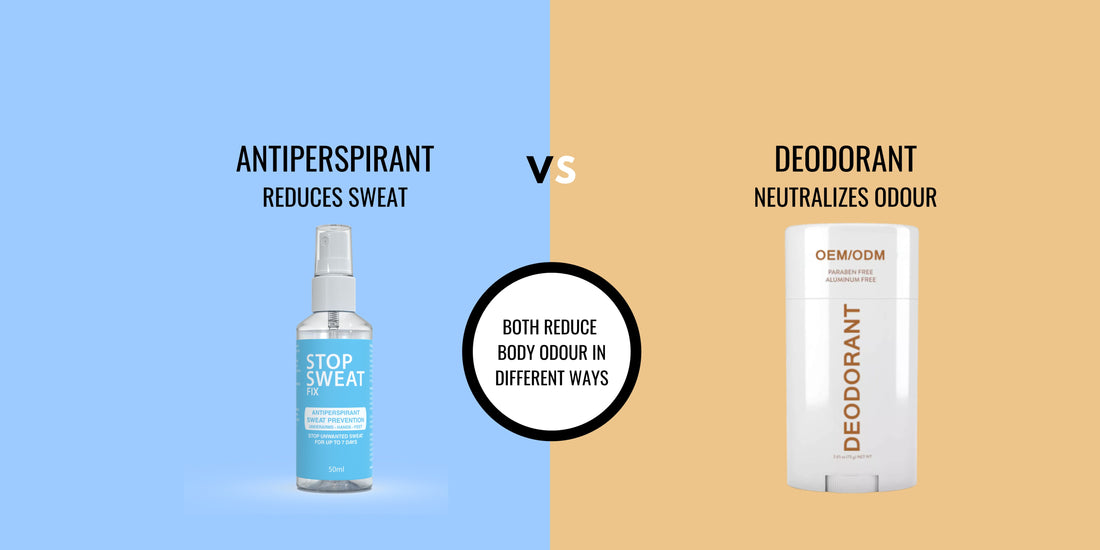How to choose the best option for you
Antiperspirants and deodorants. We use them for our underarms, but what exactly are they? It’s a common misunderstanding that antiperspirants and deodorants work the same way, and the terms are often used interchangeably because they tackle similar problems. But here’s how they work: Deodorants reduce odour, while Antiperspirants prevent both odour and sweat.
It's a common misunderstanding that antiperspirants and deodorants work the same way since the terms are often used interchangeably.
Antiperspirants: The Best for Sweat
It’s right there in the name: antiperspirants are anti-perspiration. They inhibit the flow of sweat to the skin surface. Antiperspirants contain aluminum salts, such as aluminium chloride, as their active ingredient. When aluminium salts come in contact with moisture on the skin, they dissolve and form a gel. This gel acts as a temporary barrier over the sweat glands, so less sweat can reach the skin's surface.
Deodorants: The Best for Body Odour
Deodorants combat body odour. Body odour isn’t caused by sweat itself, which is mainly water; it’s produced by the mix of bacteria that live on the skin, break down our sweat, and give off the scent we recognise as B.O. Deodorants use active ingredients like alcohol, sodium stearate, and sodium chloride to eliminate bacteria, antimicrobials to slow bacteria growth, and fragrances to improve smell. However, You won't be able to stop sweating by applying a deodorant because it won't stop the production of perspiration.
How to choose
When choosing between an antiperspirant and deodorant, here are some questions to ask yourself:
What’s my main concern?
If it’s only body odour, you can stick to deodorant. If it’s the amount you sweat, go for an antiperspirant or antiperspirant deodorant.
If you’re managing excessive sweat, a clinical strength antiperspirant like Stop Sweat Fix is a great option: with 20% aluminium chloride hexahydrate, it’s the strongest protection you can get without a prescription.
What kind of skin do I have?
Since we typically use an antiperspirant or deodorant every day, it’s important to choose ones that keep our skin in good condition. If you have sensitive skin or a history of conditions like eczema or psoriasis, try a fragrance-free formula. If your skin tends to dryness, use a soft-solid formula or a product that has added conditioners.
Safety matters
There is no scientific research to suggest that any of the ingredients used in antiperspirants, including aluminium, are damaging to your health. Antiperspirants, deodorants, and other products for hyperhidrosis are all effective and safe to use frequently.


